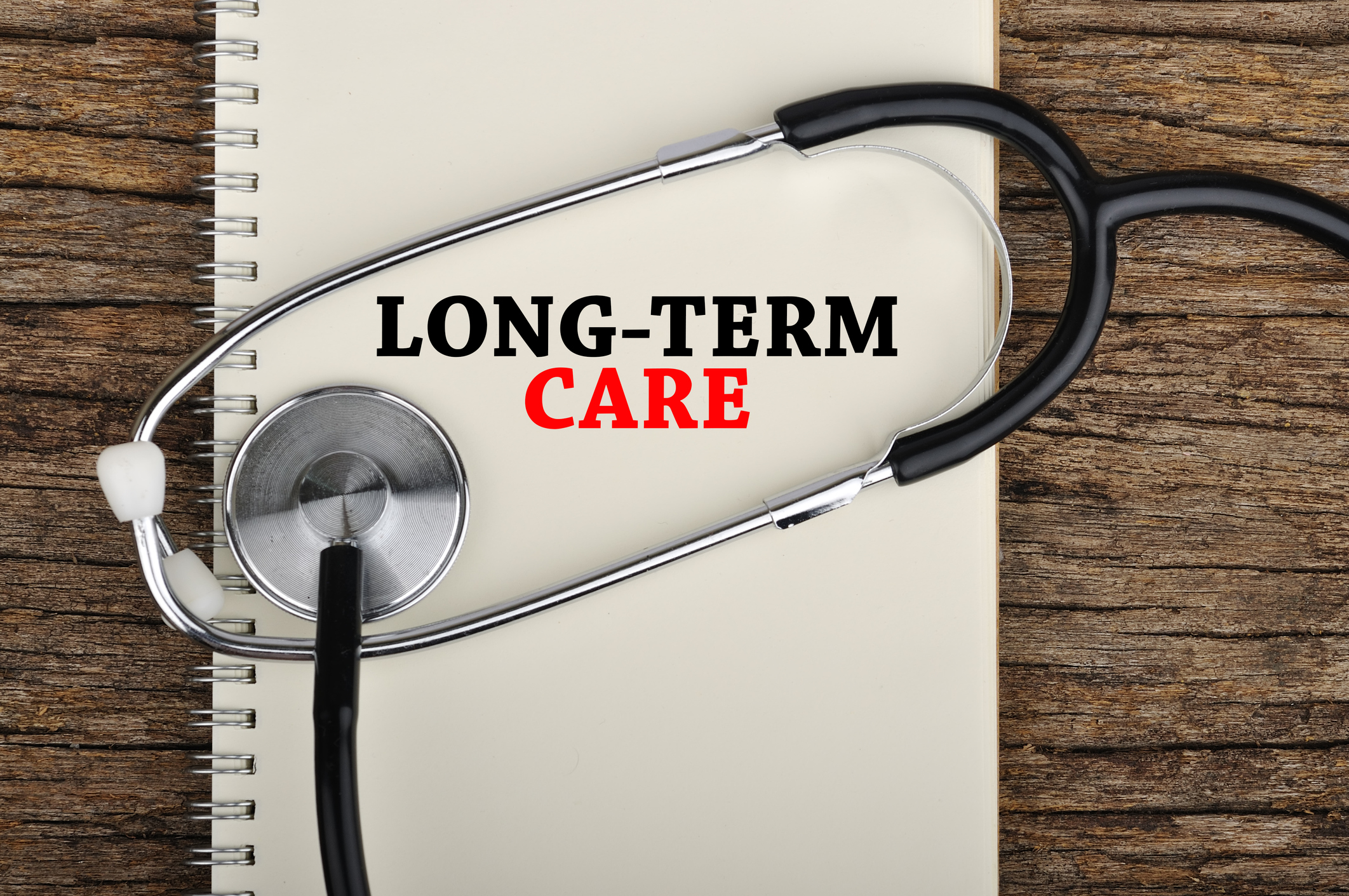Long-Term Care 101
- Long-Term Care (LTC) offers services you may need if you’re unable to perform daily activities by yourself, such as eating, bathing, or dressing. Types of care range from nursing home services to home health and personal care.
- The most popular type of care is personal care or help with everyday activities. Personal care includes bathing, dressing, or grooming. It also can include help using the toilet, eating, or moving around (i.e., getting out of bed and into a chair).
- LTC also includes community services such as meals, adult day care, and transportation services.
- Medicare only pays for care provided in a skilled nursing facility, and only after a three-day hospital stay which means you must require the skills of a licensed or trained medical professional. If someone can provide the care without professional training and licensing, Medicare considers the care as unskilled and will not pay for it.
What Type Of Long-term Care Do I Need?
| Independent Living Communities | Continuing care retirement communities (CCRC) are also known as congregate care, retirement villages, 55+ communities, and senior apartments. |
| Assisted Living Communities | 24-hour supervision, including meals, assistance with daily activities, and healthcare services—in a home-like setting. Services included: – Bathing – Eating – Dressing – Using the bathroom – Taking medication – Transportation – Housekeeping |
| Nursing Homes | These are designed for those who need constant nursing care and who have difficulties performing daily activities. Nursing homes offer skilled nursing care for residents that include services like rehabilitation services, activities, and meals. |
Memory Care | These types of facilities provide 24-hour support. They design activities to ensure a person’s safety and quality of life. Typically, this type of care is provided in an assisted living setting. It can also be offered in nursing homes and personal care homes. Residents in this facility live in semi-private apartments. |
| Residential Care Homes | These are small private facilities, usually with 20 or fewer residents that receive personal care and meals. Staff is available 24/7. Rooms are private or shared. Nursing and medical care usually are not provided on-site. |
| Homemaker and Personal Care Services | Personal care aides provide personal care in addition to other services, such as cleaning, running errands, preparing meals, and arranging for transportation. Home health aides (HHA) provide help with personal care, light housekeeping like laundry or vacuuming, and meal prep. HHAs may also provide basic healthcare services such as checking vital signs, administering medications, or assisting with medical equipment. |
| Hospice Care | This facility provides comprehensive comfort care as well as support for the family. But this care attempts to cure the person’s illness are stopped as it provided for those with a terminal illness whose doctor believes they have six months or less to live. |
| Respite Care | This provides short-term relief for primary caregivers. It can range to just an afternoon or for several days or weeks and can be provided at home, in a healthcare facility, or at an adult day center. |
Source: National Institute on Aging
How Will I Pay For Long-term Care?
- Medicaid
- Medicaid is a social welfare program designed to provide healthcare coverage for low-income individuals or families.
- Are You Eligible for Medicaid?
- Families (parents with dependent children)
- Pregnant women
- People with specific disabilities or severe health conditions
- Older adults (Medicare beneficiaries may qualify for Medicare and Medicaid aka “dual-eligible”)
- Children
- Adults with income up to 138% of the poverty level (in 35 states and Washington, D.C.)
- Are You Eligible for Medicaid?
- In addition, each state considers three factors:
- Your income
- Your household size
- Your citizenship status (must be a U.S. citizen or permanent resident for at least five years and a resident of the state in which you’ll be receiving Medicaid benefits)
- Medicaid is a social welfare program designed to provide healthcare coverage for low-income individuals or families.
- Long-Term Care insurance
- Long-term care insurance doesn’t cover medical care. But it may cover the cost of staying in a long-term care facility or help at home. Benefits include nursing care, physical, occupational, or speech therapy, and help with day-to-day activities like eating and bathing.
- Additionally, it pays for care due to chronic illness, disability, or injury. Learn more.
- Life Insurance
- Life insurance, offered by private insurers, may provide various ways to help pay these expenses. Some plans offer a hybrid option to combine life insurance with long-term care coverage.
- Personal Financing
- Unfortunately, most families face the burden of paying out-of-pocket. Families can resort to trusts and reverse mortgages to finance long-term care for their loved ones.
Medicare Basics
Medicare doesn’t cover much long-term care but it’s vital to know how to apply different coverage to help pay for your loved ones’ medical needs. The table below highlights the basics.
| Medicare Part A (hospital insurance): | Includes inpatient hospital care including a semi-private room, hospital services, and medical supplies. Skilled nursing facility stays, hospice care, and some aspects of home health care for those with severe disabilities and are homebound and need skilled services. |
| Medicare Part B (doctor services): | Includes outpatient care, including doctor appointments, several home healthcare services, mental health services, medical equipment, and some preventive services. In certain circumstances, ambulance rides to the hospital or other facilities are also covered. |
| Medicare Part C (Medicare Advantage): | Available to any eligible Medicare beneficiary enrolled in Part A and Part B, Medicare Advantage plans cover additional services. Most plans (90%) include prescription drug coverage. Many offer some coverage for dental and vision care, hearing aids, and fitness centers. Recently, plans have been permitted to provide other benefits, including adult day care, in-home support services, and home safety modifications, such as grab bars and wheelchair ramps. |
| Medicare Part D (prescription drug coverage): | These plans differ by which medications they cover, and how much you must pay. But even the least expensive prescription drug plans must cover most of the generic and brand name drugs and the insulin preparations that are generally needed by people on Medicare. Part D plans must cover all or most of the drugs in the following categories: – Anticancer drugs (unless covered by Medicare Part B) – Antidepressants – Antipsychotic medications – Anticonvulsive treatments for seizure disorders – HIV/AIDS treatments – Immunosuppressant medications, – Opium Treatment Programs (OTP) and at least one naloxone product for $0 copay or low-cost sharing – Vaccines |
How To Find Trustworthy Long-Term Care Providers
- First, discuss using a licensed home health agency. You can find tips here.
- Due to the high cost of using an agency, many people will make private arrangements for their home health care.
Many of the best practices remain the same, but keep the following in mind:
- Conduct your own criminal record and credit background checks.
- Obtain two recent professional references. Follow up with past employers.
- Draft an agreement of work responsibilities and payment schedule.
Remember: you are hiring someone and responsible for reporting their income to the government. The employee needs to be on a 1099 tax form because you don’t have to withhold taxes on the person’s behalf.
- Use Medicare’s Care Compare tool. Search physicians, hospitals, and nursing homes check their ratings and review inspection documents. You can find information about providers and facilities based on personal needs.
In most states, nursing homes, home health care, and home care agencies must be licensed.
- Research proper licenses, certifications, and accreditations for nursing homes, home health and care agencies. These facilities generally must be certified before paying for any covered services. Certification verifies patient safety and quality care standards.
- Verify your state’s requirements and agencies with your state health department.


